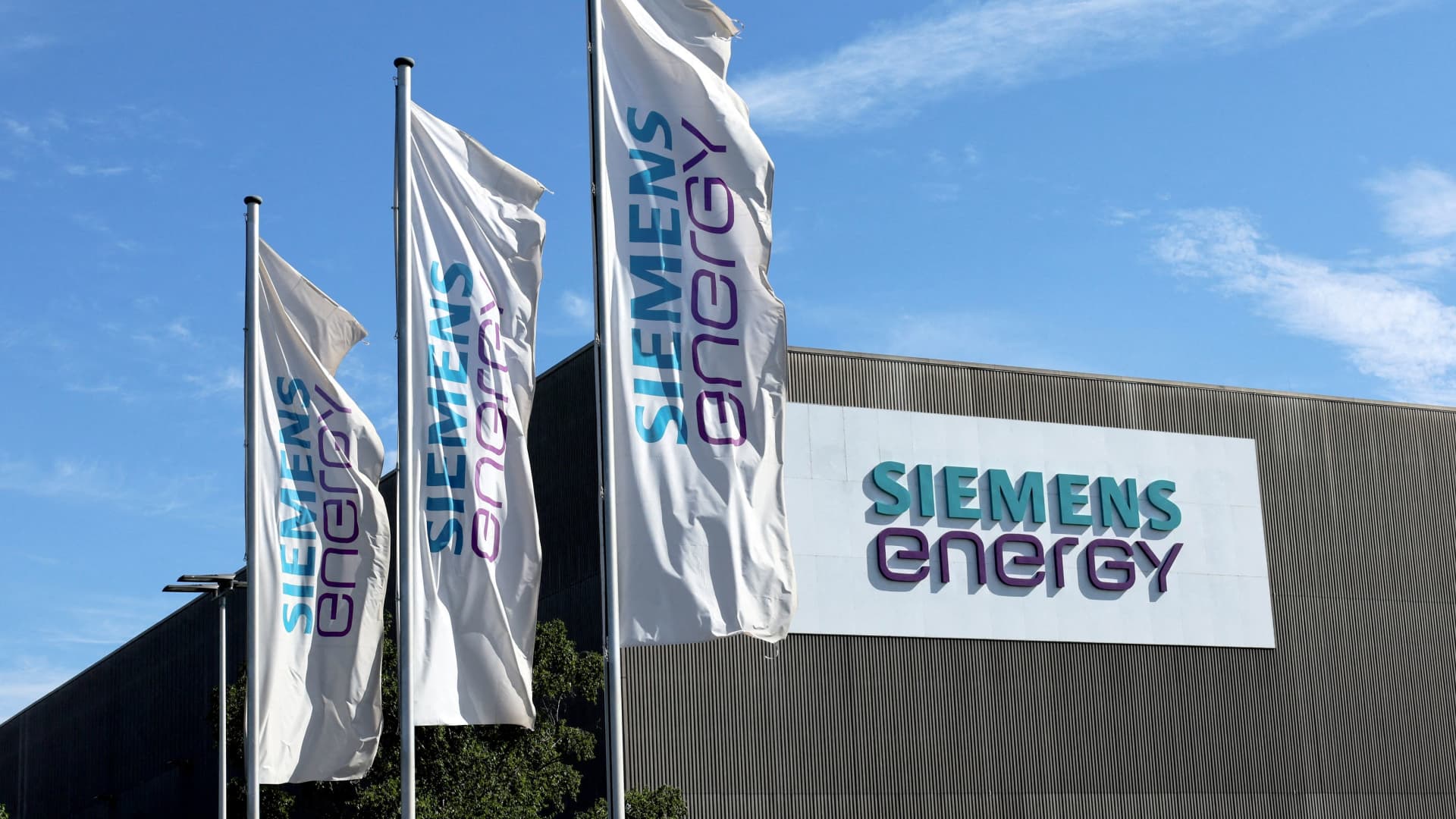Siemens Energy shares slide 35% after company seeks support from German government


Shares of Siemens Energy tumbled 35% on Thursday after the company sought guarantees from the German government.
The wind power giant made headlines earlier this year, when it scrapped its profit forecast, citing a “substantial increase in failure rates of wind turbine components” at its wind division Siemens Gamesa.
The company had also warned that major setbacks at Siemens Gamesa could drag on for years.
“The strong growth in order intake, particularly in the former Gas and Power business areas, leads to a rising need of guarantees for long-term projects,” the company said in a statement.
“Considering this requirement, the Executive Board is evaluating various measures to strengthen the balance sheet of Siemens Energy and is in preliminary talks with different stakeholders, including banking partners and the German government, to ensure access to an increasing volume of guarantees necessary to facilitate the anticipated strong growth,” it added.
German business news weekly WirtschaftsWoche reported Thursday that Siemens Energy was seeking up to 15 billion euros ($15.8 billion) in guarantees. Siemens Energy was not immediately available to comment on the reported figure when contacted by CNBC.
The company, which did not comment further on the financial details of a targeted package, said its financial results for the fiscal year 2023 were expected to be fully in line with its guidance.
Siemens Energy is set to report its fiscal fourth-quarter results on Nov. 15. The company on Thursday said it has yet to decide its annual budget for 2024.
“The wind business Siemens Gamesa is working through the quality issues and is addressing the offshore ramp up challenges as announced in the third quarter communication for fiscal year 2023,” Siemens Energy said.
The stock fell to fell to the bottom of the pan-European Stoxx 600 index as Thursday’s selloff deepened.
Shares of the firm are down 60% year-to-date.
This post has been syndicated from a third-party source. View the original article here.




